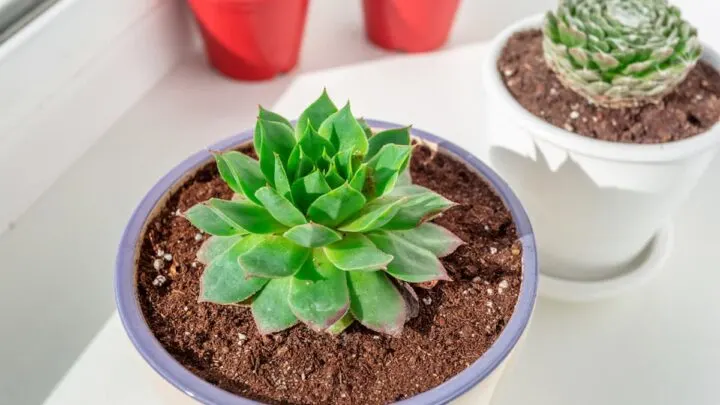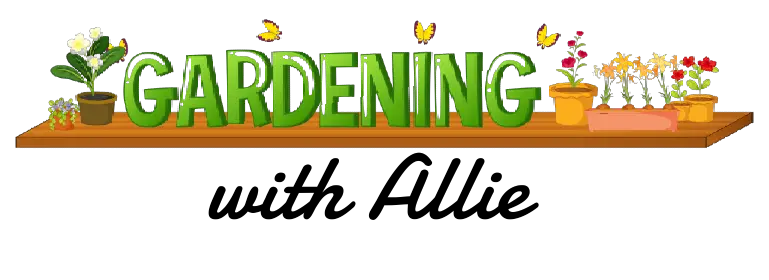Baby Bio is all over shelves and promises to deliver greener leaves and healthier plants. While users rave about the results, not many talk about succulents, leaving many to wonder if it will deliver the same results.Can you use Baby Bio on succulents?
The answer is yes, though growers need to use caution in how they use Baby Bio and be aware of the kind of treatment they’re providing to their succulents.
Below, we’ll get into more detail about using Baby Bio with your succulents, providing all the tips you need to help your plants grow their best.

What Is Baby Bio?
Before we move into the details, let us first look at what Baby Bio is. Baby Bio is a company that specializes in nutritious food for plants. Many of their top products are enriched with seaweed, which delivers nutritious minerals and vitamins to plants.
Is Baby Bio Good for All Plants?
Baby Bio packs a ton of nutrients, but is it good for all plants? It’s recommended most for potted plants, though there is no evidence suggesting that it’s not okay for outdoor plants. The one thing that growers need to watch out for is slow-growing plants.
Growers should consider diluting Baby Bio for slow-growing plants, as it has a high dose of nutrients in a small amount of product. The concentration of nutrients is high, which can be too much for plants that take their time to grow and bud.
How Do You Feed Succulents Baby Bio?
For the most part, succulents don’t need too much fertilizer the thrive. They are used to surviving in all kinds of conditions, making them perfect for dry, warm conditions. For that reason, you should use Baby Bio sparingly, making sure not to overdo it.
It’s recommended not to use for small succulents, waiting until they are mature to start adding fertilizer. Once succulents are strong and have a good foundation, you can add Baby Bio, but start off doing so sparingly.
It’s best to use 5-10 drops, dissolving it into 1 pint of water. Do this each time you water, which should be once a week. If you live in a really dry area and believe that you need more nutrients and moisture, you should increase watering to twice a week, reducing if you start to see any yellowing or browning.
What Kind of Fertilizer is Best for Succulent?
Succulents have a reputation as being relatively easy to plant to grow. While they don’t take much in some areas, others may require some extra attention. Depending on the type, you may need a particular type of soil or fertilizer, so you may need to do some digging before giving your plants anything.
Types of Fertilizer for Succulents
Before picking out a fertilizer, it’s best to know the differences between some of their favorites.
Granular Fertilizer
One type of fertilizer for succulents is granular fertilizer. Granular refers to the small particles that are mixed inside, mostly made up of pebble-like particles. This type of fertilizer is great for succulents, as it releases its nutrients slowly over time. With each watering, your succulents will get a healthy dose of nutrients without getting overloaded.
Liquid
An alternative to granular fertilizer is liquid fertilizer. Baby Bio is considered liquid fertilizer and must be diluted before adding to succulents. Many liquid fertilizers come with highly concentrated nutrients, aiding in rapid delivery. Diluting it for succulents is recommended, ensuring they’re not getting too much.
The Golden Ratio
One significant factor to consider when giving your succulents fertilizer is the quantity. Too much could make them wilt and whither, while too little can stunt their growth. It’s all about finding the perfect ratio.
When adding a liquid fertilizer like Baby Bio, it’s recommended to alternate weeks, add a few drops to water one week, and skip the next. This will deliver nutrients but won’t add so much that your succulent will suffer.
Choosing Fertilizer for your Succulents
If there is one thing you should look for in a soil, it’s whether or not it’s easy to apply. Complicated fertilizers often lead to missed doses, as growers forget or don’t have time to treat their plants. The easier, the better, allowing you to add nutrients while you water and skip all the hassle. To choose the best fertilizer for your succulents, here are some key things to consider.
Organic Or Inorganic?
There are both organic and inorganic fertilizers on the market, but which one should you choose? Organic soils are excellent and come with all the obvious benefits, but making the correct calculations can be more difficult.
With inorganic, you’re getting many more chemicals and synthetic ingredients, both of which can affect your plant’s growth. They are easier to apply, as they come with all the minerals and vitamins you need, though some can be potent.
When choosing a fertilizer, go with the best for your watering and gardening habits, not taking on more than you can handle.
NPK Ratio
Succulents love a good and even mix of NPK. Each of these three minerals is the most important for all plants, though the amount that each plant thrives in can vary. For succulents, it’s best to follow the 5-5-5 rule.
Choose a fertilizer where all of the elements are evenly distributed, giving your succulents all they need and nothing that they don’t.
Final Thoughts
When it comes to growing succulents, you don’t have to do much. As long as you keep the soil nutritious and the soil moistened, you should have a successful succulent. Before adding any fertilizer, make sure that you consider the type of succulents you have.
Baby Bio works well with all plants, including succulents, though you need to know how often to add it and how much to add. Add just a few drops to your watering regimen every two weeks, giving plants a healthy dose without overdoing it.

Hi there, my name is Allie and welcome to my blog; GareningWithAllie!
Much of what you see written here is just our personal experiences with gardening. Along with the content I write here, there is also a unique collection of gardening topics covered by some of our close friends. I hope you find everything you read here to be helpful, informative, and something that can make your gardening journey the most lovely experience ever! With that said, Happy Gardening!
